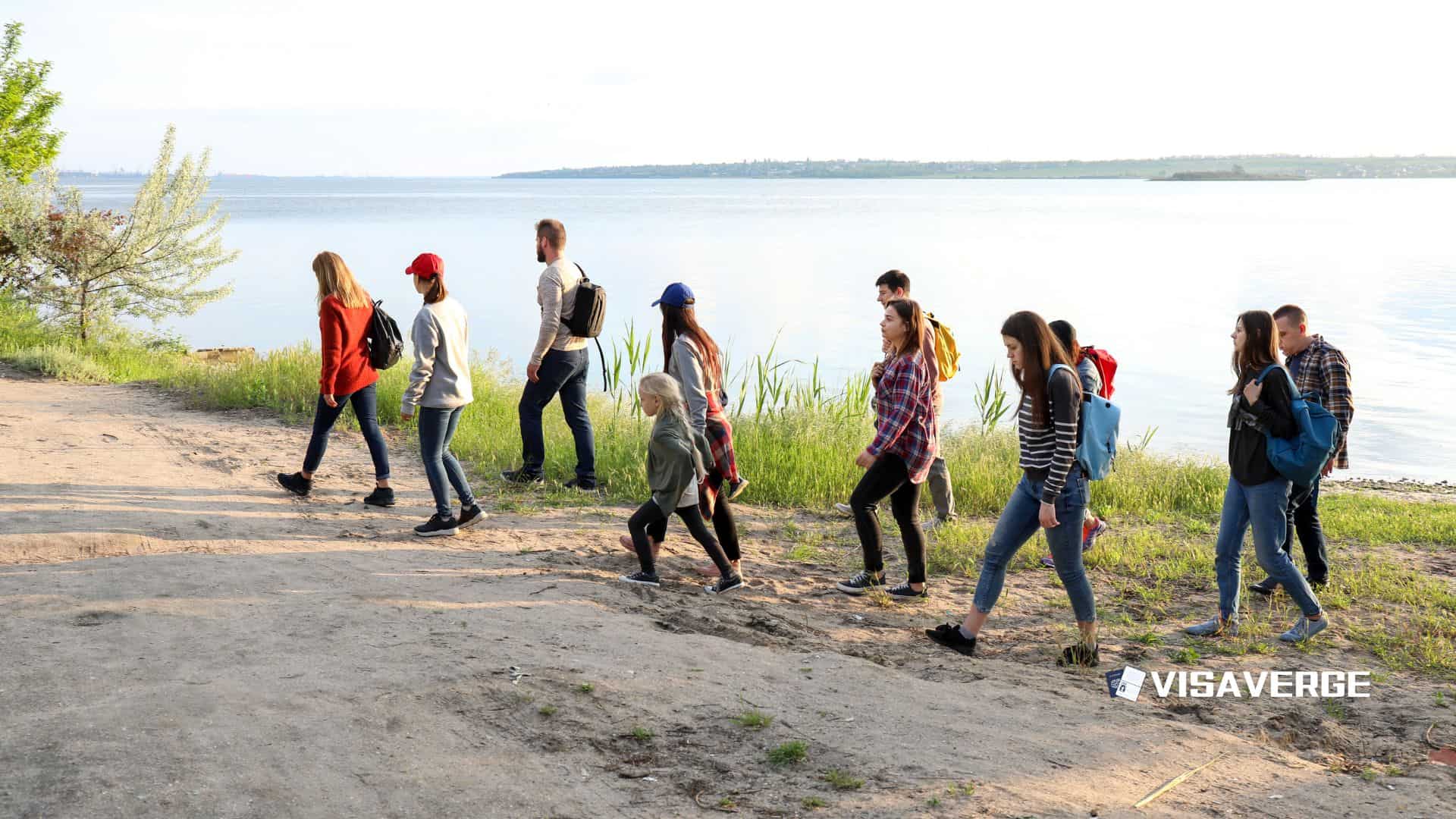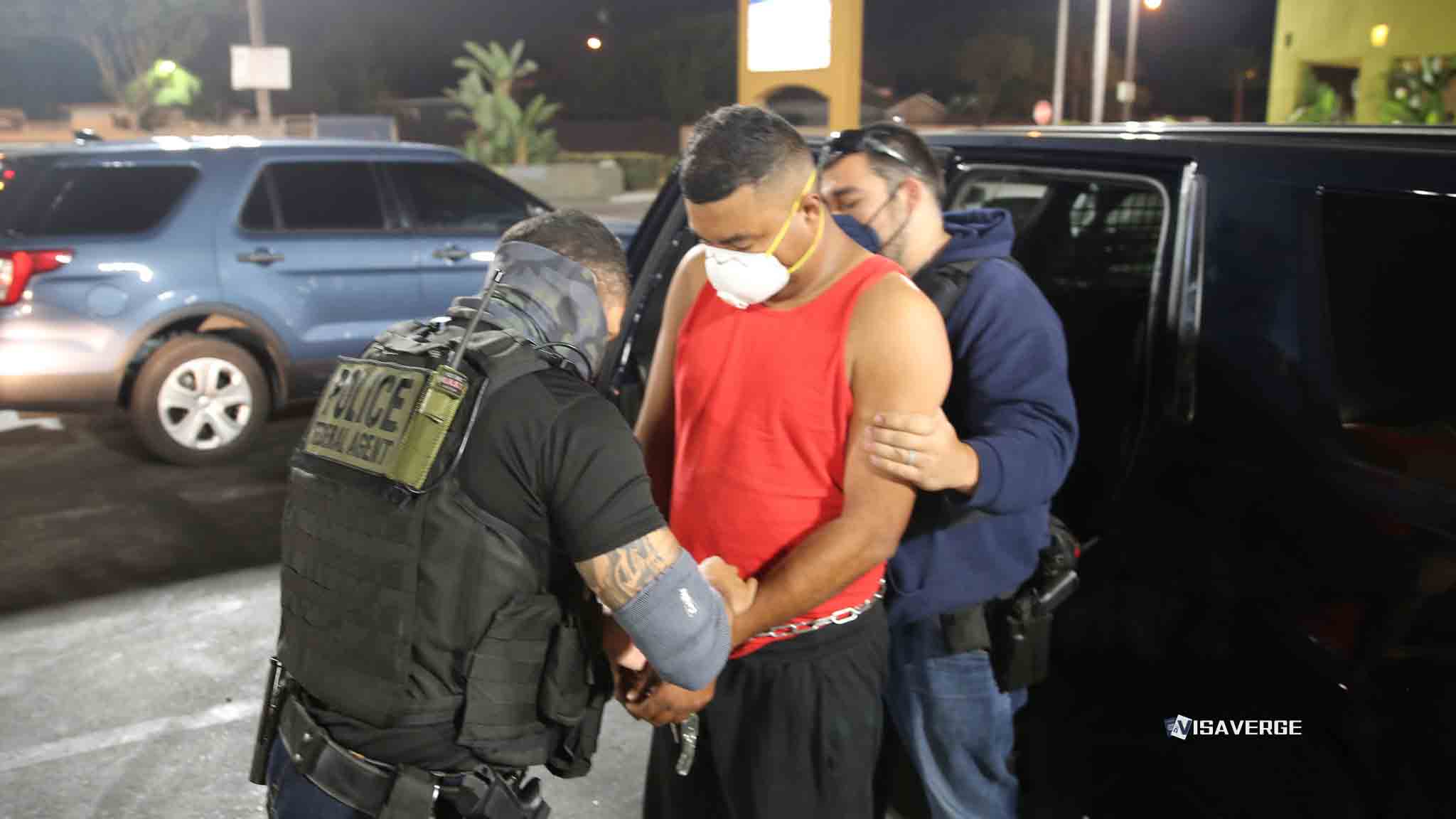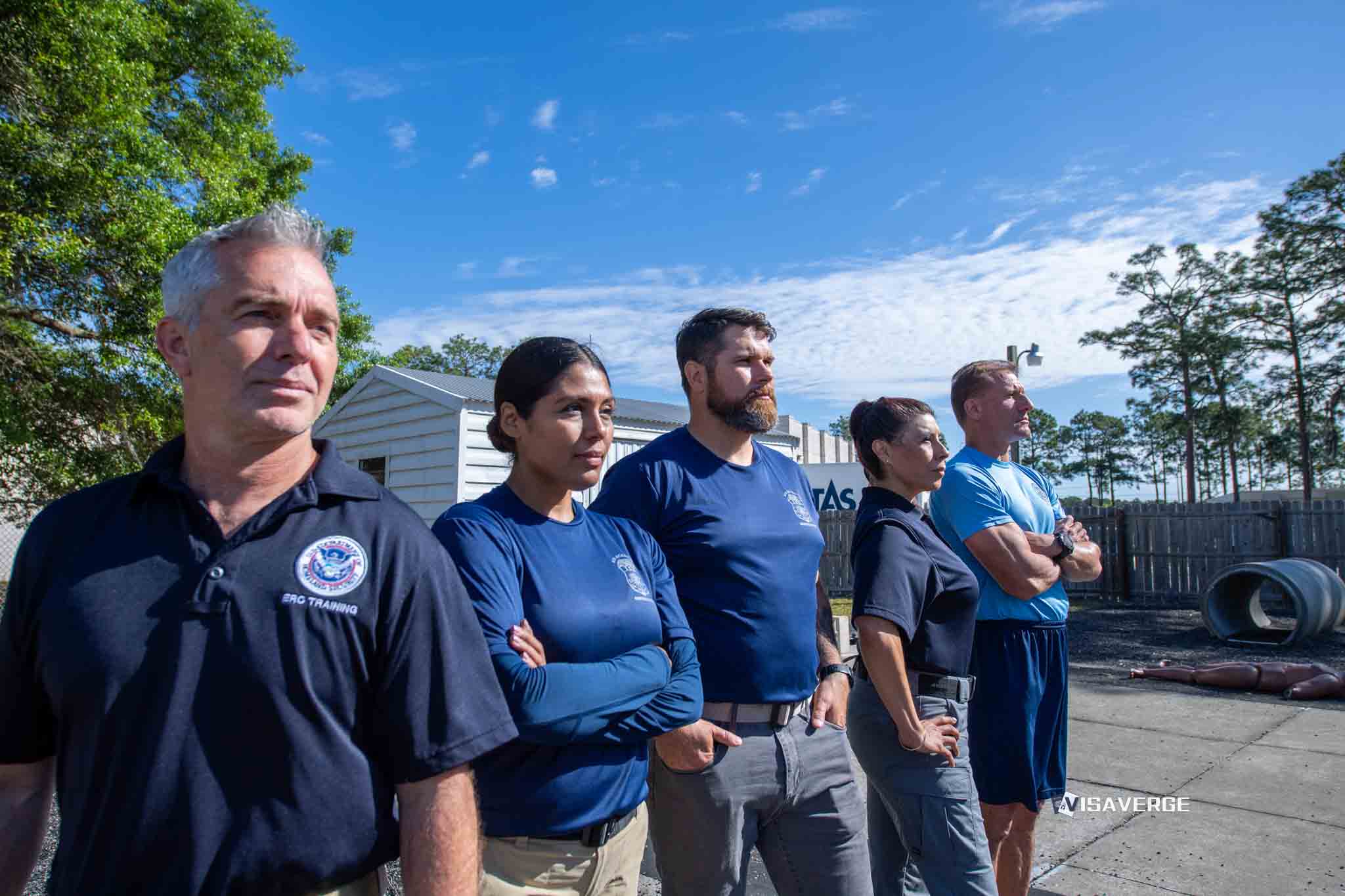Key Takeaways
• Detroit’s 2025 mayoral race features four candidates focusing on immigration, community, and public safety.
• Detroit is a sanctuary city; candidates propose community policing and immigrant business support.
• Primary is August 5; general election is November 4; new mayor starts in 2026.
Detroit’s 2025 mayoral race is shaping up to be one of the most important elections in the city’s recent history. With Mayor Mike Duggan stepping down to run for Michigan governor, the city faces an open contest for the first time in over a decade. As Detroit prepares for the August 5 primary and the November 4 general election, immigration has become a central issue, closely tied to community well-being and public safety. The four leading mayoral candidates—James Craig, Saunteel Jenkins, Solomon Kinloch Jr., and Mary Sheffield—are all presenting their ideas on how Detroit should address immigration in ways that support both newcomers and long-time residents.
Who are the candidates, and why is immigration such a big topic in Detroit right now? The answer lies in Detroit’s unique history, its diverse population, and the concerns of voters who want safe neighborhoods, strong local businesses, and fair treatment for everyone living in the city.

Detroit’s Mayoral Race: Immigration at the Forefront
On June 16, 2025, the four main candidates met for a widely watched debate at Wayne State University. Moderated by Jason Colthorp and co-sponsored by AARP and the Michigan Chronicle, the event focused on issues that matter most to Detroiters. According to recent polls by Glengariff Group and AARP Michigan, immigration is high on the list of community concerns, especially as it relates to public safety and economic opportunity.
Detroit has always been a city of immigrants. From the early days of European settlers to more recent arrivals from the Middle East, Africa, and Latin America, newcomers have helped shape Detroit’s neighborhoods, businesses, and culture. Today, many Detroiters are asking how the next mayor will support immigrant communities while keeping the city safe and prosperous for all.
Current Policy Landscape: Where Detroit Stands on Immigration
Detroit does not have its own immigration enforcement agency. Instead, it follows federal laws and has a long-standing reputation as a “sanctuary city.” This means the city tries to protect immigrants from federal immigration enforcement actions, such as deportations, unless required by law. Under Mayor Duggan, Detroit has focused on reducing crime and building trust between police and the community. However, some immigrant groups have said they still feel uneasy about police interactions, fearing that even small problems could lead to trouble with immigration authorities.
As the city prepares for new leadership, the question is: Will the next mayor continue these policies, or will there be changes that affect how immigrants live and work in Detroit?
Where the Candidates Stand: Immigration, Community, and Public Safety
James Craig: Public Safety and Economic Growth
James Craig, Detroit’s former police chief, is running on a platform that puts public safety at the center. He believes that safe neighborhoods are the foundation for economic growth and community development. Craig often talks about the importance of small businesses—many of which are owned by immigrants—and how they help revive Detroit’s economy.
Craig says he wants to strengthen trust between law enforcement and the community. He knows that many immigrants worry about being treated unfairly or facing deportation if they report crimes or cooperate with police. By building better relationships, Craig hopes to make all Detroiters, including immigrants, feel safer and more willing to work with police.
Key points from Craig’s platform:
– Focus on public safety as the basis for neighborhood development
– Support for small, immigrant-owned businesses
– Plans to build trust between police and immigrant communities to reduce fear of discrimination or deportation
Mary Sheffield: Inclusive Community Development
Mary Sheffield is currently leading in the polls, with 38% support according to recent surveys. She has made inclusive community development a main part of her campaign. Sheffield believes that everyone in Detroit—no matter where they were born—should feel safe and have access to city services.
Sheffield supports community policing, a model where police officers work closely with residents to solve problems and prevent crime. She says this approach helps build trust, especially in neighborhoods with many immigrants. Sheffield also wants to make sure that city policies protect immigrant rights while keeping all residents safe.
Highlights from Sheffield’s approach:
– Promotes community policing to build trust across diverse groups
– Advocates for policies that protect immigrant rights
– Focuses on equitable public safety strategies that include everyone
Solomon Kinloch Jr. and Saunteel Jenkins: Social Justice and Engagement
Both Solomon Kinloch Jr. and Saunteel Jenkins have made social justice and community engagement key themes in their campaigns. They recognize that immigrants often face unique challenges, such as language barriers or fear of interacting with authorities.
Kinloch Jr. and Jenkins want to make sure immigrant voices are heard in city government. They support including immigrants in public safety discussions and ensuring that everyone can access city services without worrying about their immigration status.
Main ideas from Kinloch Jr. and Jenkins:
– Emphasize social justice and equal treatment for all residents
– Support integrating immigrant perspectives into public safety planning
– Want to guarantee access to city services without fear of immigration enforcement
How Immigration, Community, and Public Safety Intersect
For many Detroiters, immigration is not just about who gets to live in the city. It’s about how safe people feel in their neighborhoods, whether they can start businesses, and if they trust the police. The candidates agree that public safety and community development are closely linked to immigration.
Some of the main proposals include:
– Expanding community policing: This means having police officers work more closely with residents, including immigrants, to solve problems together.
– Cultural competency training: Teaching police officers about different cultures and languages so they can better serve all Detroiters.
– Supporting immigrant-owned businesses: Helping newcomers start and grow businesses, which creates jobs and strengthens neighborhoods.
– Protecting immigrant rights: Making sure city policies do not unfairly target immigrants or make them afraid to seek help from authorities.
These ideas are meant to help immigrants feel welcome and safe, while also making Detroit a better place for everyone.
What Could Change for Immigrants in Detroit?
If the next mayor follows through on these proposals, immigrants in Detroit could see several practical changes:
- Safer neighborhoods: With more community policing and better relationships between police and residents, immigrants may feel less afraid to report crimes or ask for help.
- Better access to city services: Policies that separate city services from immigration enforcement could encourage more immigrants to use public resources, like health clinics or job programs.
- Reduced fear of deportation: By keeping local police separate from federal immigration authorities, immigrants may worry less about being deported for minor issues.
- More support for businesses: Programs that help immigrant entrepreneurs could lead to more jobs and stronger local economies.
However, these changes depend on who wins the election and how much support they get from the city council and other leaders.
The Election Process: What Happens Next?
The mayoral race will move forward in several steps:
- Primary Election (August 5, 2025): Voters will choose from all the candidates. The top two finishers will move on to the general election.
- General Election (November 4, 2025): The two finalists will face off, and the winner will become Detroit’s next mayor.
- Transition and Policy Implementation: The new mayor will take office at the start of 2026. They will have the power to propose and carry out new policies, including those affecting immigration and public safety.
To make these changes, the mayor will need to work with the city council, the Detroit Police Department, immigrant advocacy groups, and community organizations. This teamwork is important for making sure new policies work well for everyone.
For more information about Detroit’s government and city services, readers can visit the official City of Detroit website.
Expert Perspectives: Why Immigration Policy Matters in Detroit
Detroit’s immigrant population is large and diverse, including Arab, Latino, and African communities. Experts say that public safety policies must be sensitive to the needs of these groups. If immigrants feel afraid of the police, they may not report crimes or help solve problems in their neighborhoods.
Advocates for immigrants often point to the importance of “sanctuary city” policies. These rules help protect immigrants from being turned over to federal authorities for deportation, unless there is a serious crime involved. Supporters say this approach makes the city safer because everyone feels comfortable working with the police.
Some law enforcement leaders agree that trust is key. They say that strong policing is important, but it only works if people believe the police are on their side. This is especially true for immigrants, who may have had bad experiences with police in their home countries.
As reported by VisaVerge.com, cities that balance public safety with immigrant protections often see better cooperation between residents and law enforcement, leading to lower crime rates and stronger communities.
Detroit’s History: A City Built by Immigrants
Detroit’s story is closely tied to immigration. Over the years, people from all over the world have come to Detroit to work in factories, open businesses, and build new lives. This diversity has made Detroit a vibrant city, but it has also created challenges, especially when it comes to making sure everyone feels included and safe.
Under Mayor Duggan, Detroit has tried to improve public safety and support economic development. However, some immigrant groups have said they still feel left out or worried about how police treat them. The 2025 election is a chance for new leaders to address these concerns and find better ways to support all Detroiters.
Looking Ahead: What’s Next for Immigration Policy in Detroit?
The outcome of the 2025 mayoral election will shape Detroit’s approach to immigration for years to come. With changing demographics and growing immigrant communities, the next mayor will need to find ways to balance enforcement of public safety laws with protections for immigrants.
Possible future developments include:
– New programs that involve immigrant leaders in public safety planning
– Expanded training for police officers on cultural issues
– Policies that make it easier for immigrants to start businesses or access city services
– Continued commitment to sanctuary city principles
The election will also send a message about what kind of city Detroit wants to be—a place that welcomes newcomers and values diversity, or one that takes a stricter approach to immigration.
Resources and Contacts for Detroit Residents
For those who want to learn more or get involved, here are some helpful contacts:
- Detroit Mayor’s Office: City Hall, 2 Woodward Ave, Detroit, MI 48226; Phone: (313) 224-3400; detroitmi.gov
- Detroit Police Department: detroitmi.gov/departments/detroit-police-department
- Wayne State University (debate venue): wayne.edu
- AARP Michigan: aarp.org/mi
- Michigan Chronicle: michiganchronicle.com
Takeaways for Detroiters and Immigrants
As Detroit’s mayoral race heats up, immigration remains a key issue that affects everyone in the city. The candidates are offering different ideas, but all agree that public safety, community development, and support for immigrants are closely connected.
What can Detroiters do now?
– Stay informed: Follow the candidates’ positions and attend debates or community meetings.
– Vote: Make your voice heard in the August 5 primary and the November 4 general election.
– Get involved: Join local organizations or city programs that support immigrants and public safety.
The next mayor will have a big impact on how Detroit handles immigration, public safety, and community growth. By staying engaged, residents can help shape the city’s future and make sure Detroit remains a welcoming place for all.
Learn Today
Sanctuary city → A city that limits cooperation with federal immigration enforcement to protect undocumented immigrants.
Community policing → A strategy where police work closely with residents to prevent crime and build trust.
Deportation → The formal removal of a non-citizen from the United States for violating immigration laws.
Immigrant-owned businesses → Businesses started and operated by individuals who were born outside the United States.
Election primary → An initial election to select the top candidates who will advance to the general election.
This Article in a Nutshell
Detroit’s 2025 mayoral election centers on immigration’s role in community safety and economic growth, with candidates proposing policies to support immigrant residents and small businesses, aiming to build trust between police and diverse neighborhoods for a safer, inclusive city future.
— By VisaVerge.com












